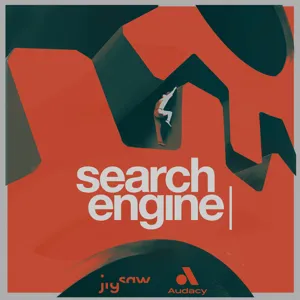Podcast Summary
First NFT sale in 2014 on Namecoin blockchain: NFTs enable unique digital ownership and trading, from art to tweets, on a blockchain, leading to a growing multi-billion dollar market.
In 2014, the concept of Non-Fungible Tokens (NFTs) was born during a technology conference when an artist sold a digital piece of art, represented by an animated GIF, to a technologist for just $4. This sale marked the first recorded transaction of an NFT on a blockchain, using the Namecoin blockchain. The significance of this transaction was not the art itself, but the documentation of ownership on the blockchain. This event paved the way for the creation and trade of unique digital assets, including art, collectibles, and even tweets, using NFTs. The NFT market has since grown significantly, with sales reaching billions of dollars in 2021. The recent crypto market instability, including the collapse of Terra, Celsius, and 3AC, has not dampened the enthusiasm for NFTs, as they offer a new way to prove ownership and authenticity of digital assets.
Revolutionizing Unique Ownership of Digital Assets: NFTs allow unique ownership of digital assets in various domains, leading to multi-million dollar sales, but their practical uses and long-term value beyond speculation remain unclear.
Non-Fungible Tokens (NFTs) have revolutionized the digital world by allowing unique ownership of digital assets, starting with pixelated art and expanding to various domains such as music, sports, and even domain names. The value of NFTs skyrocketed, attracting both crypto enthusiasts and high-end art collectors, resulting in multi-million-dollar sales. However, the practical uses and long-term value of NFTs beyond speculation remain unclear. Recently, a high-profile NFT purchase involving a celebrity sparked controversy, leading to an investigation that shed light on the unusual alliance between celebrities and NFTs. Stay tuned to learn more about this intriguing story. Meanwhile, if you're looking for a thoughtful gift for Mother's Day, consider Aura frames, which allow you to share and display unlimited photos. And for those seeking comfortable performance apparel, Vuori offers stylish, versatile, and eco-friendly options.
Dick Doyle's Skepticism Towards NFTs: Initially skeptical about NFTs, Dick Doyle, a Hollywood manager, found intrigue in their unique market vibe and eventually entered the NFT world through his clients' investments.
Our friend, Dick Doyle, a Hollywood manager, shared his initial skepticism towards NFTs, viewing them as abstract digital assets with questionable value. However, he noticed a significant difference in the NFT market's vibe compared to traditional art markets, where everything seemed to be for sale in a hurry. Despite his initial confusion, Dick Doyle manages entertainers and was introduced to NFTs through their purchases as investments. Listeners can explore the versatility of Vuori clothing by visiting viore.com/pjsearch and receiving a 20% discount on their first purchase, along with free shipping on US orders over $75 and free returns.
Hollywood Stars Selling NFTs of Their Works and Experiences: Quentin Tarantino and other celebrities are selling unique digital assets based on their personal works and experiences as NFTs, with potential ethical concerns and uncertainty surrounding the market's value.
Quentin Tarantino and other celebrities in Hollywood are jumping on the NFT (Non-Fungible Token) bandwagon, selling unique digital assets based on their personal works and experiences. Tarantino, for instance, plans to sell NFTs of frames from his movies, including handwritten scripts and doodles, with the first collection coming from "Pulp Fiction." While some see this as a creative and innovative way to monetize previously untapped value, others view it as a gold rush with potentially questionable ethics. The rapid selling and the involvement of individuals with shady reputations in the NFT market add to the skepticism. Ultimately, the value of these NFTs lies in the subjective perception of art and rarity, and the market remains to be seen.
Celebrities' IP hunger fuels NFT obsession: Celebrities are buying NFTs for unique digital assets and underlying IP rights, driving a gold rush mentality in the NFT market
The celebrity obsession with NFTs (Non-Fungible Tokens) can be attributed to their desire to own intellectual property (IP) in the digital world. With the rise of streaming platforms and the increasing demand for content, Hollywood has been scouring various industries for potential IP, leading to strange occurrences like a TV show based on a podcast company. This hunger for IP has also extended to celebrities, who see NFTs as a means to not only own unique digital assets but also the underlying IP rights. This motivation drove the popularity of collections like the Bored Ape Yacht Club, where buyers not only obtained digital ownership of the image but also the IP rights. This gold rush mentality has created a frenzy around NFTs, with celebrities and companies vying for ownership of digital assets and the potential IP they hold.
Bored Ape Yacht Club and IP Rights: The Bored Ape Yacht Club NFTs have gained immense value and popularity, leading to ideas for movies, shows, and theme parks, but true IP ownership and industry reinvention remain challenges for individual owners.
The NFT (Non-Fungible Token) space, particularly the Bored Ape Yacht Club, has seen a significant surge in financial value and popularity, leading to various ideas for utilizing the IP rights. Some individuals believe they can create movies, shows, or theme parks based on their individual Bored Apes, but they only own the rights to that specific character. Others, like celebrities, are attracted to NFTs for the potential of true IP ownership and reinventing the media industry. Paris Hilton's appearance on Jimmy Fallon, showcasing her love for her Bored Ape, was a notable moment for many in the NFT community, symbolizing the growing trend and community around these unique digital assets. However, the barriers to entry, such as securing funding and agreements from major studios, remain significant challenges.
Celebrities and NFTs: A Complex Relationship: Celebrities endorsed NFTs without fully understanding the potential backlash, leading to controversy over transparency and ethics. Despite this, many celebrities saw NFTs as a new art form and continued to engage.
During the early days of NFTs, many celebrities endorsed them without fully understanding the potential backlash from their fans. This was due in part to the fact that celebrities often receive compensation for endorsements, and they saw NFTs as just another unique and interesting opportunity. However, some fans felt betrayed when they discovered that these celebrities had financial ties to the NFT marketplaces where they were promoting their NFTs. This issue was amplified when it was discovered that several celebrities shared the same talent agency, which also invested in NFT marketplaces. Despite the controversy, celebrities continued to endorse NFTs, leading some to question the ethics of wealthy individuals receiving free or discounted NFTs. Ultimately, the NFT craze brought up larger conversations about late-stage capitalism and the role of influencers in promoting products. Despite these debates, many celebrities saw NFTs as a new and exciting form of art and continued to engage with the technology. The controversy surrounding celebrity endorsements of NFTs highlights the importance of transparency and disclosure in celebrity partnerships and the potential consequences of not fully understanding the potential backlash from fans.
Stolen NFT highlights security risks in the market: The NFT market, while promising, comes with risks including potential theft and vulnerabilities. It's crucial to prioritize security and proceed with caution.
The world of NFTs, while full of excitement and potential, can also be fraught with risk and uncertainty. This was highlighted in a recent story involving comedic actor Seth Green and his stolen NFT, Bored Ape 8398, which he had planned to use as the star of a new TV show. The theft, and the subsequent pleas for its return, brought attention to the potential vulnerabilities in the NFT market and the importance of security. Despite the challenges, many in the industry remain optimistic about the future of NFTs and their potential to revolutionize industries from art to entertainment. However, it's important for individuals and businesses to approach the space with caution and a solid understanding of the risks involved.
Social Media Sleuthing Uncovers Anonymous NFT Owner's Identity: Investigative techniques can uncover identities of anonymous NFT owners through social media analysis, highlighting the importance of being cautious with online activity.
The blockchain, while offering new opportunities for anonymous transactions, also presents new avenues for investigative research. A corporate investigator named Paul, who is not a fan of NFTs or crypto but intrigued by the challenge, used social media sleuthing to uncover the identity of an anonymous NFT owner, Darkwing 84. By analyzing the patterns of likes on Darkwing's Instagram account, Paul was able to identify potential real-life friends of the owner and trace them back to their main accounts. This led Paul to discover Darkwing's true identity. The investigation demonstrates how investigative techniques can be used to uncover the identities of individuals involved in NFT transactions, despite their attempts to remain anonymous. It also highlights the importance of being cautious with social media activity, as seemingly innocuous likes and posts can potentially reveal personal information.
Uncovering stolen NFTs using blockchain technology: Blockchain technology can help identify stolen NFTs and bring accountability to the digital economy. A stolen NFT was traced back to its origin using the artist's Instagram photo and the suspect's initials and birth year.
The blockchain technology used in cryptocurrencies can uncover hidden information and bring transparency to transactions, even in the context of stolen digital assets. In the story, a friend of the artist Darkwing discovered a photograph on his Instagram page that looked like it was taken by the artist himself, despite being surrounded by commercial work. This discovery led to the identification of a Sydney-based cinematographer with the initials DW and the birth year 1984, making him a strong candidate for Darkwing. The intriguing part of this situation is that the person who bought the stolen NFT from Seth Green might have been unknowingly purchasing stolen goods. This incident showcases the uncharted territory of crypto and the potential for investigators to use the blockchain to uncover information and bring accountability to the digital world. For compliance professionals like Paul, this technology is a valuable tool to track down individuals and assets that were previously difficult to trace. Overall, the story highlights the transformative power of blockchain technology and its potential to bring transparency and accountability to the digital economy.
NFTs in Art and Entertainment: A Complex Issue: The debate over NFTs in art and entertainment continues, with opinions divided on their authenticity and value. Some view it as an innovative way to bring digital assets into traditional media, while others see it as a grift. Regardless, the market for NFTs, particularly Bored Ape Yacht Club, faces challenges as prices slide.
The integration of NFTs into art and entertainment is a complex issue with valid arguments on both sides. Seth Green's acquisition and loss of a Bored Ape NFT sparked a conversation about the authenticity and value of NFTs in the art world. While some view it as a grift, others see it as an innovative way to bring digital assets into traditional media. Regardless, the market for NFTs, particularly Bored Ape Yacht Club, continues to face challenges as prices slide. Despite the controversy, Seth Green was able to negotiate for the return of his NFT. The debate surrounding celebrities and NFTs remains open, with opinions divided on the authenticity and value of these digital assets. Ultimately, it's up to individuals to decide whether they see value in NFTs and how they should be incorporated into art and entertainment.




